| List | Previous | Next |
OAXACA
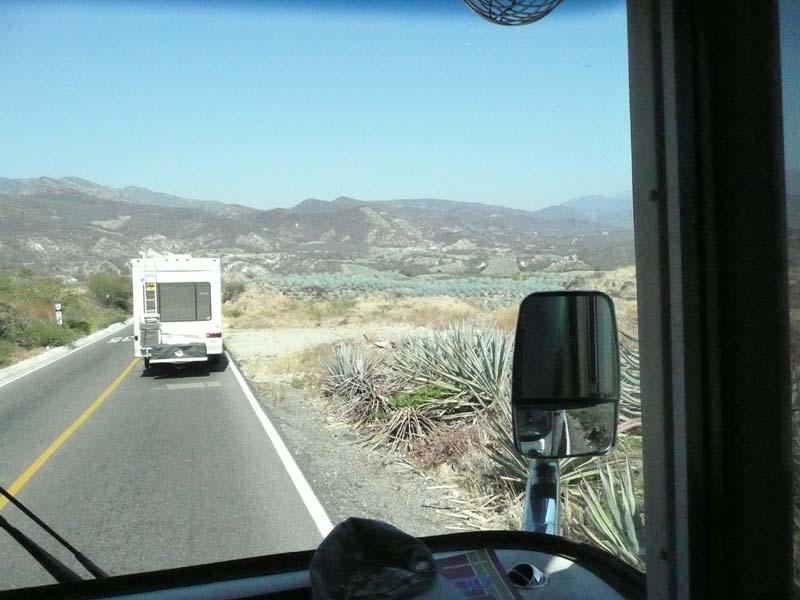
ON THE WAY TO OAXACA
We had a rather long day motoring to Oaxaca. It was through the mountains, over some 4-6 thousand foot high passes. It was nice scenery, over ok, but sometimes bad roads.
Oaxaca is the land of Mescal which is very similar to Tequila. Both are made from the agave or maguey plant, but with slightly different processing.
We passed many fields of agave on our way. These plants are grown in a nursery for the first year and then transplanted to the fields where they grow to maturity in six to seven years. They are not watered during that period and are harvested by cutting off all the leaves and using the remaining pineapple in the process of making the Mescal. A typical field is shown on the right.
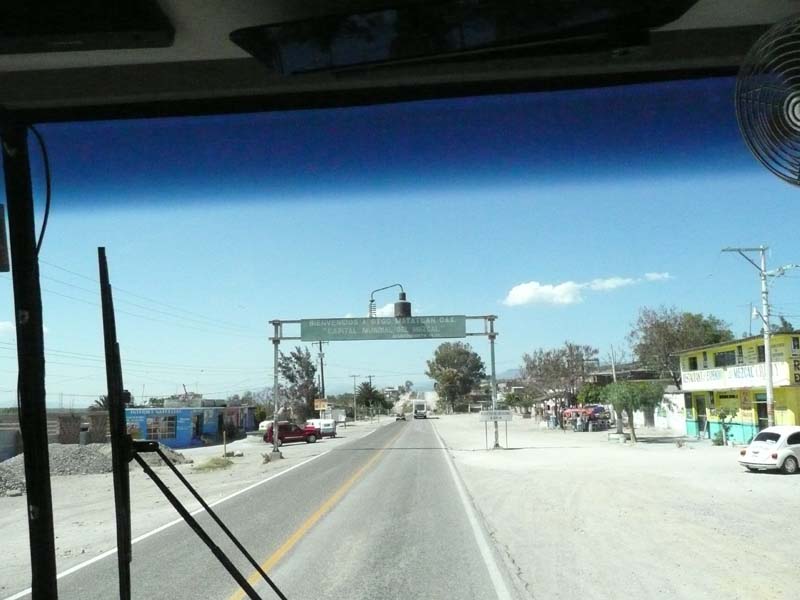
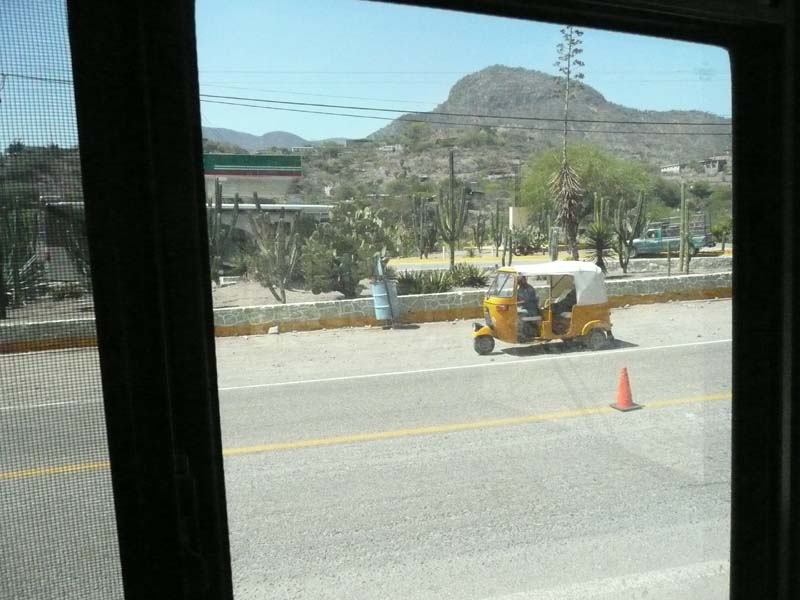
Right: These are the local taxi cabs
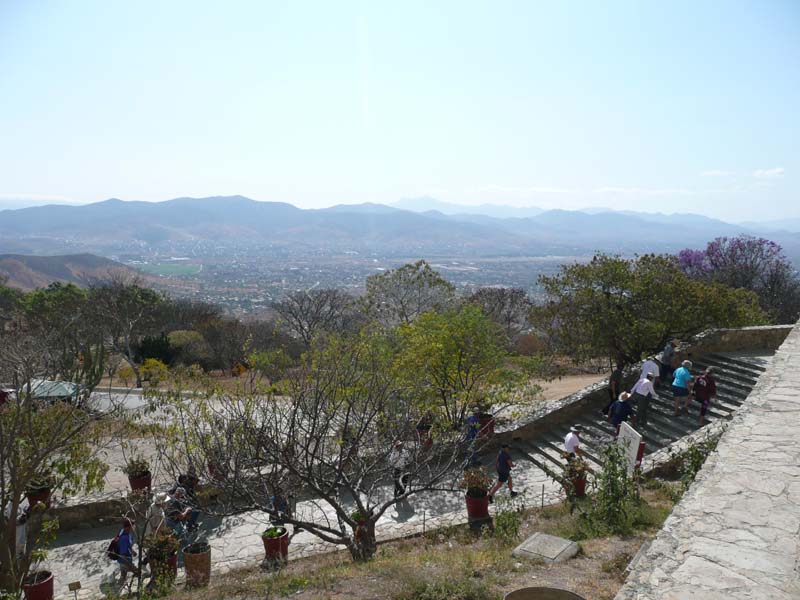
MONTE ALBAN
Monte Alban, one of the very first cities in the new world, was founded about 500 BC. It was the capital of the "cloud people", the Zapotecs, and lasted until around 750 AD.
Monte Alban was built on the tops of the hills in the center of a valley that is now Oaxaca, as seen from the ruins in the picture to the left. They leveled the top of the hill and then built their city there. It is estimated that the city has 1000 or so structures but only about ten percent have been excavated.
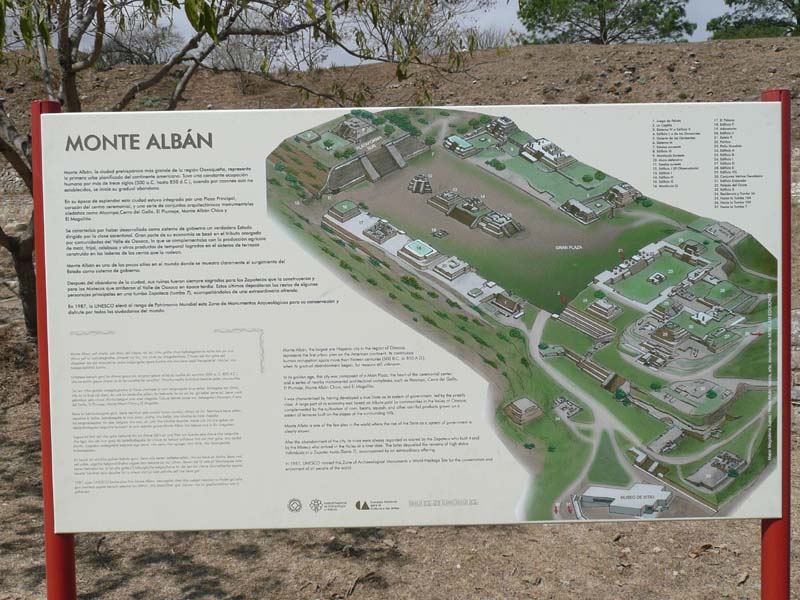
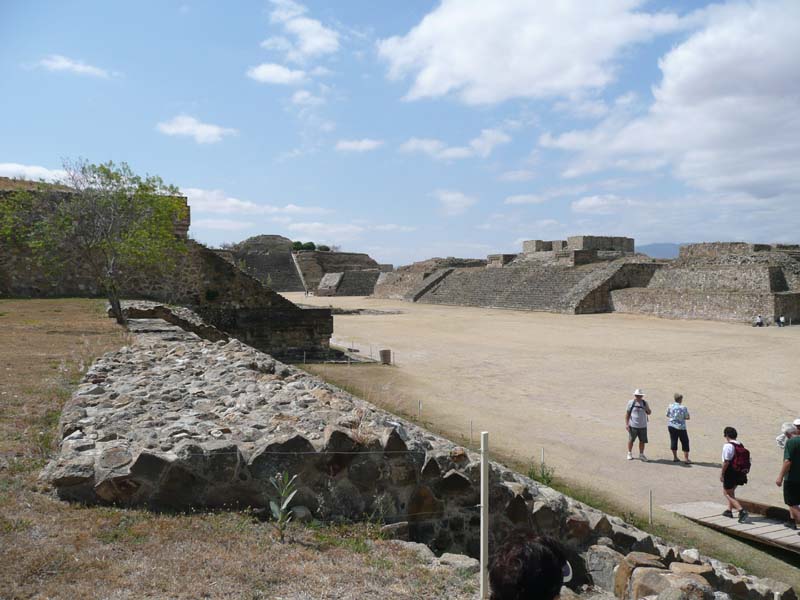
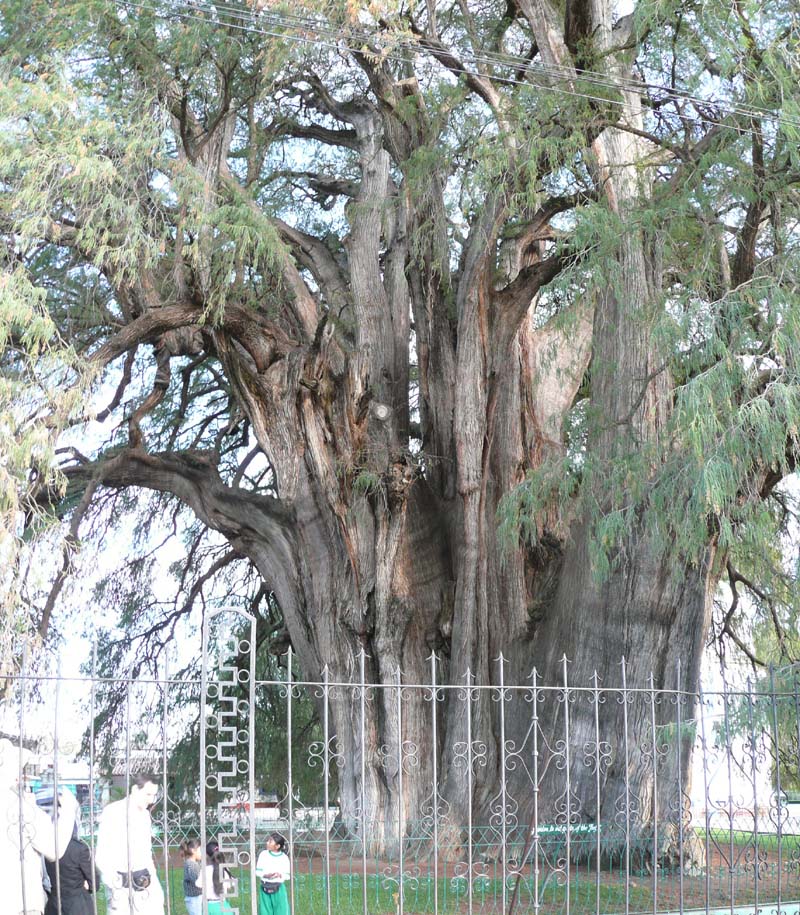
TULE
We are camped in the city of Tule which is on the outskirts of Oaxaca. It is a small city with a really nice center square that has a massive, 2000 year old water cypress tree. This is very old for this type of tree and no one knows why this particular tree has been able to live so long and remain healthy. The base of the trunk is over 45 feet in diameter.
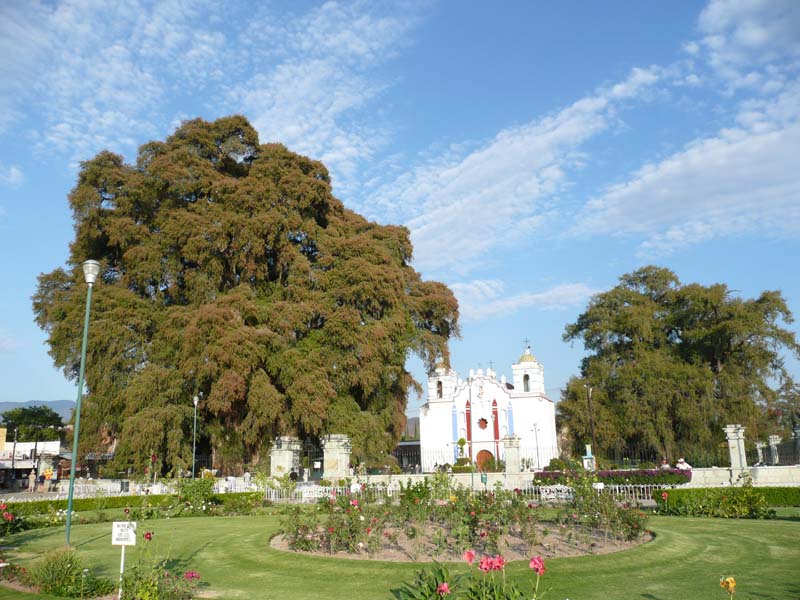
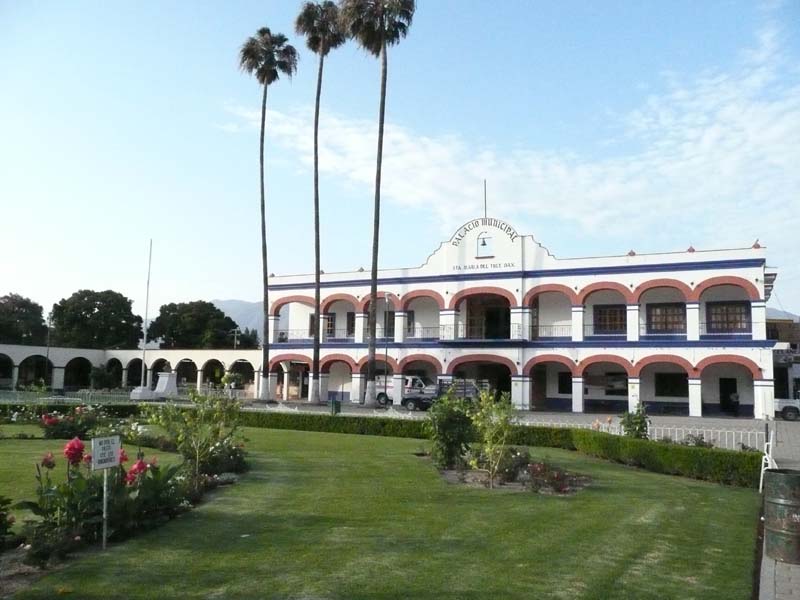
Right: Hotel on the square. The square is planted with many flowers of all types.
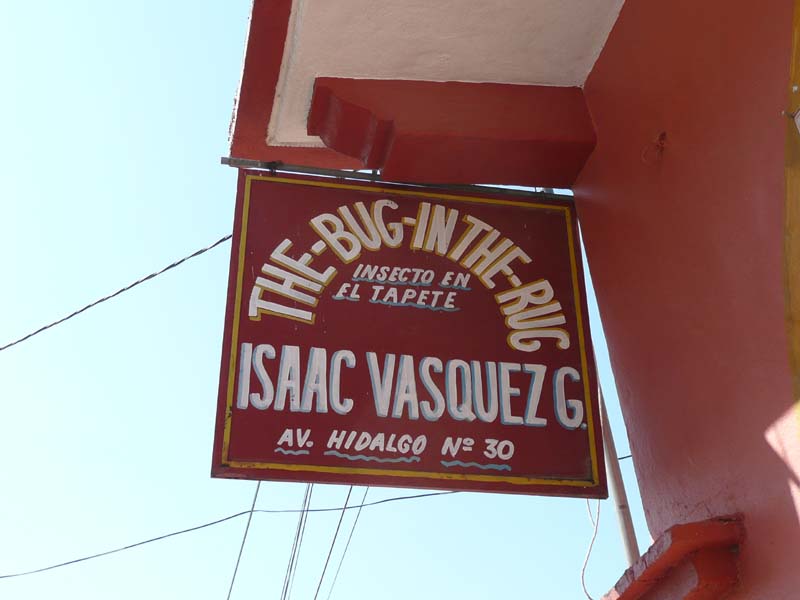
OAXACAN ARTISANS
There are many famous artists that are found in the small villages located near Oaxaca. The products that the area is best know for are rugs, pottery figures, belt strap weavers and the most famous of all, the wood carvers.
The "bug-in-the-rug" refers to a bug that lives on a certain type of cactus and provides the dyes that are red, purple and brown. The color is controlled by the acidity of the dye solution when it is used to dye the wool. The colors are set by boiling the dyed wool in salt water. This type of traditional dye is used in the best of the rugs, such as those made by Isaac Vasquez G and his family. Lesser quality rugs use synthetics, which are cheaper and require much less labor to use.
The Aguilar sisters are famous for fired figures, some of which are very bizarre. There is also a village that weaves using the back strap method. The weaver sits on a stool and pulls the material tight via a strap that goes around their waist.
The Oxacan wood carvers are our favorites. They make very unique figures, usually animals, that are then painted in bright colors with very detailed patterns.
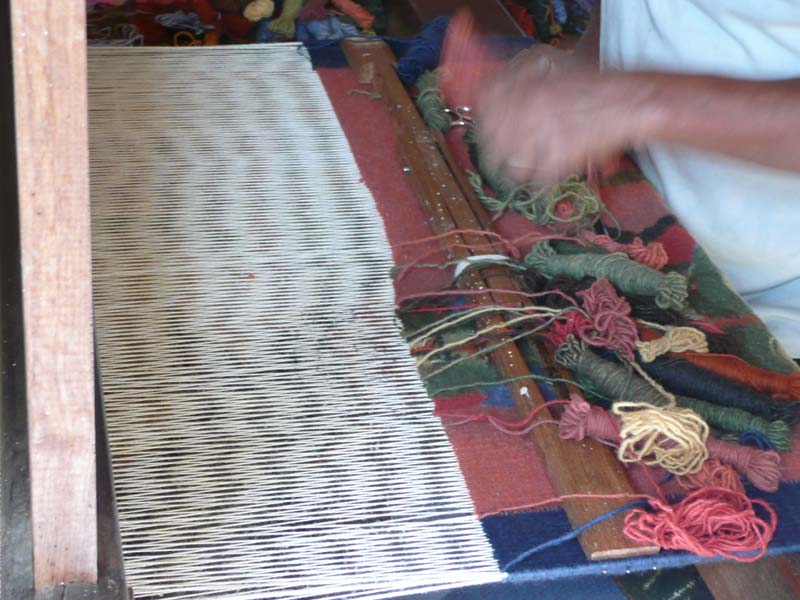
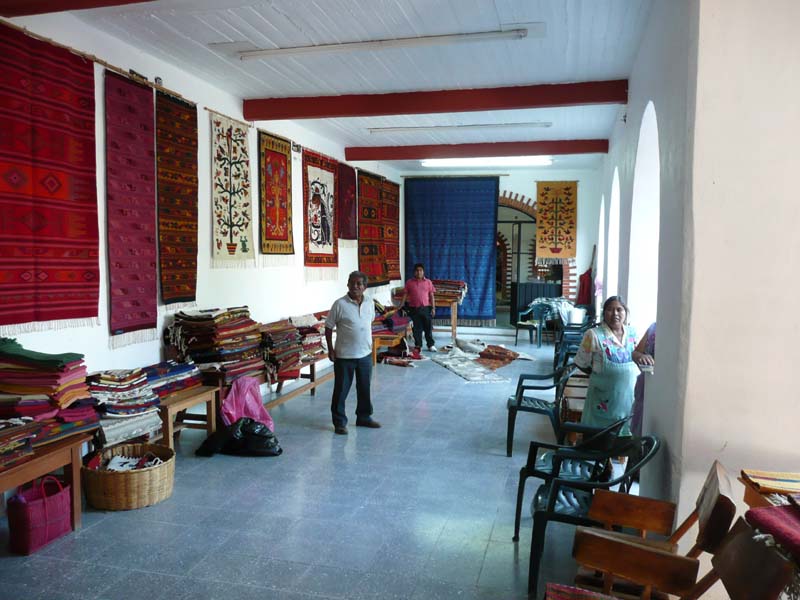
Right: Isaac Vasquez G in the display area of his shop
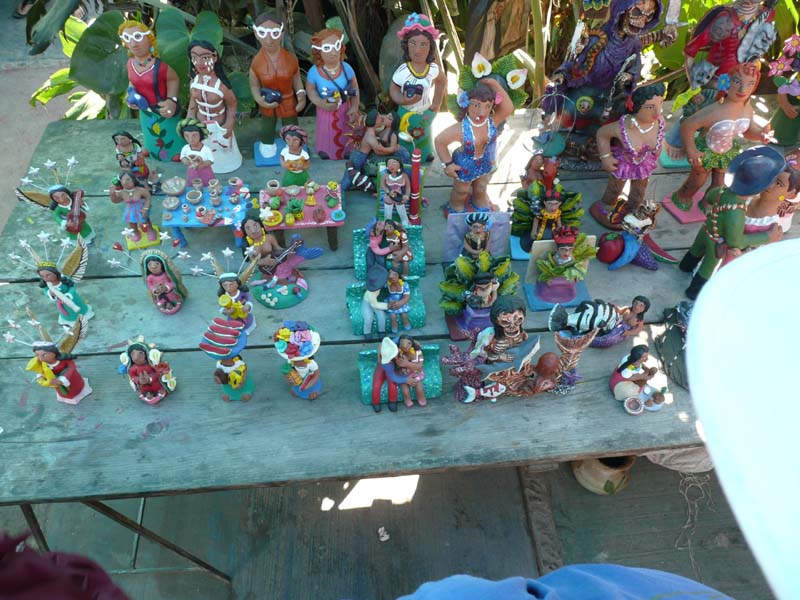
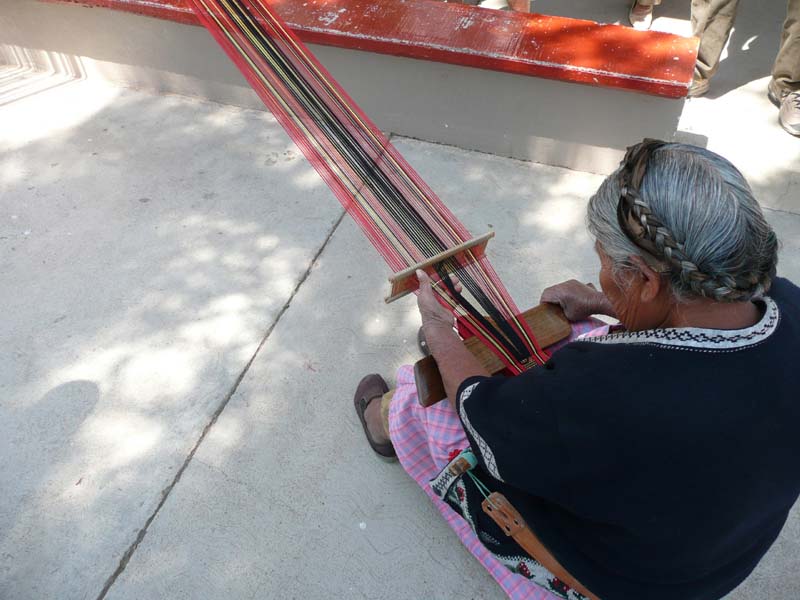
Right: A back strap weaver working
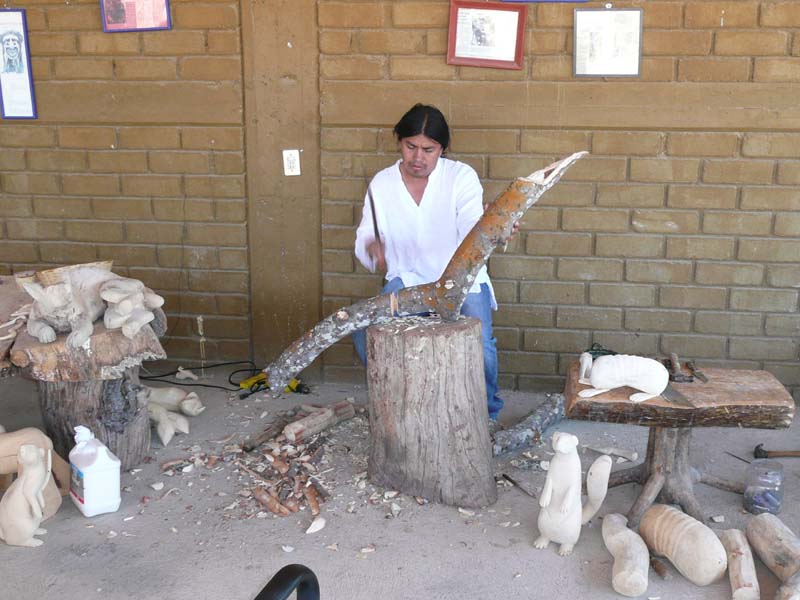
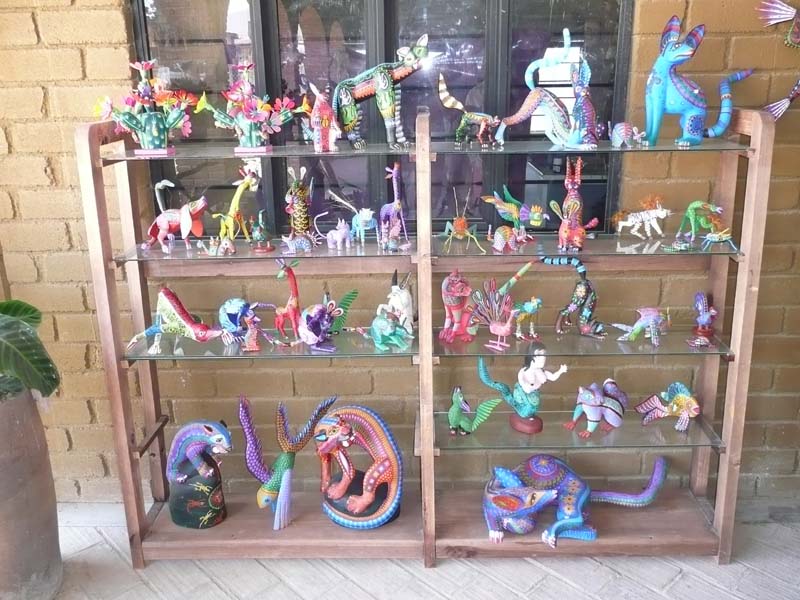
Right: Finished carvings.
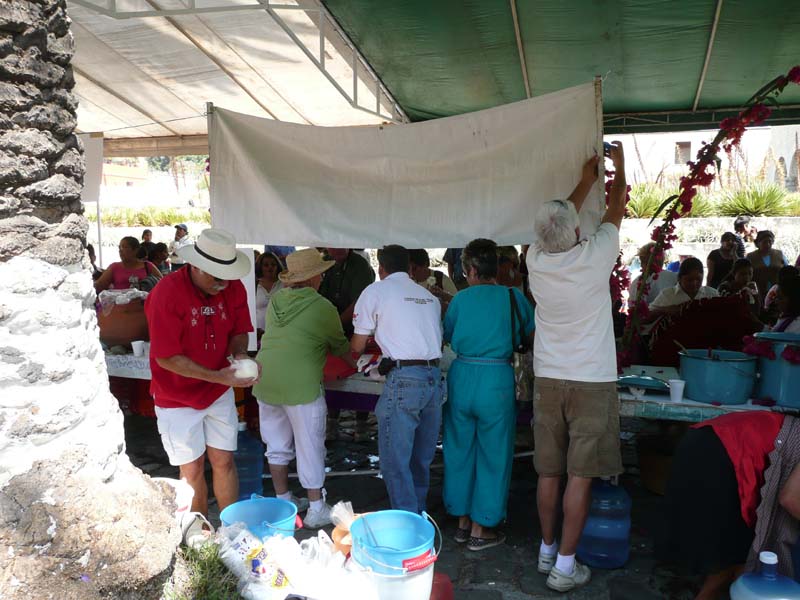
CELEBRATION OF THE GOOD SAMARITAN
There is a tradition in Oaxaca that celebrates the act of the Good Samaritan giving water to a robbery victum in a parable related by Christ. On the fourth Friday of Lent, in an area near the main church, various people and organizations give flavored water to anyone that passes by. They put together decorated booths that have several flavors of water, and for a two hour period, they fill cups for the people that visit their booth.
The people on our caravan, with the help of our guide, put together a booth and participated in the festivities. It was a lot of fun and we were the only booth that was not Mexican. We got a lot of favorable attention and enjoyed interacting with the people.
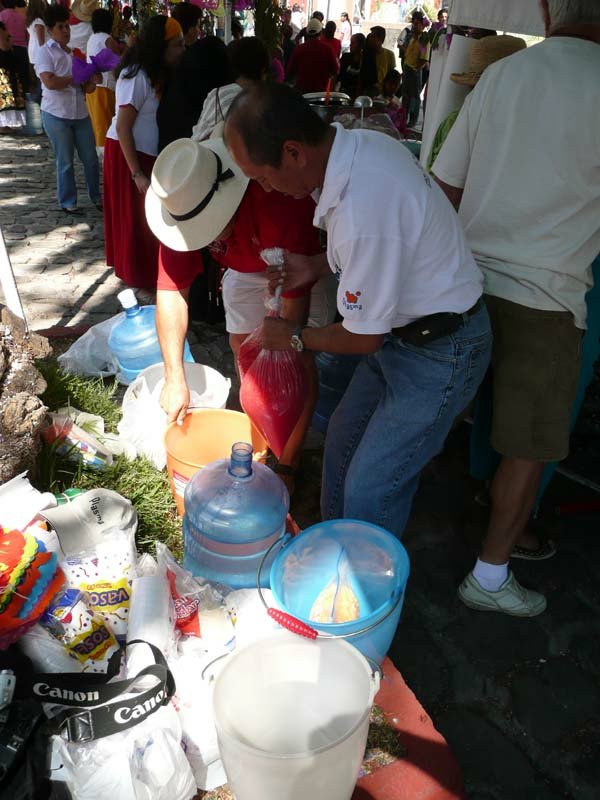
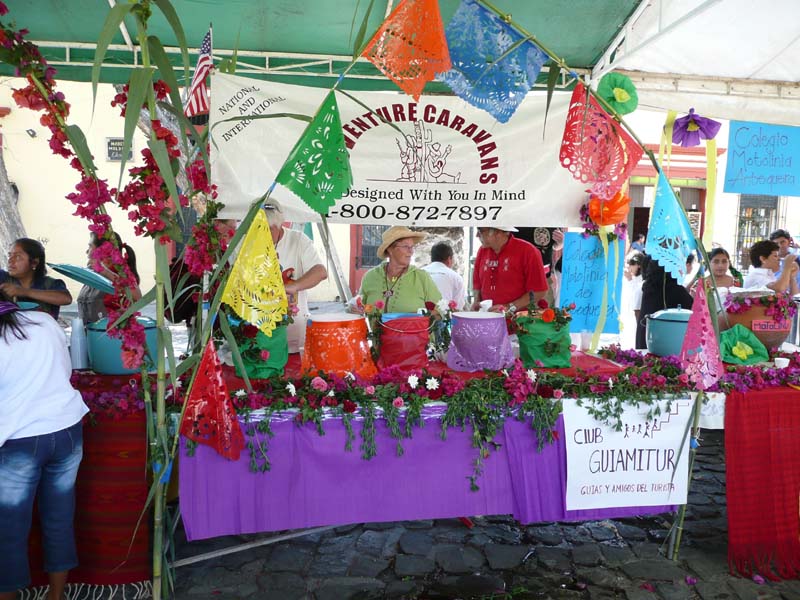
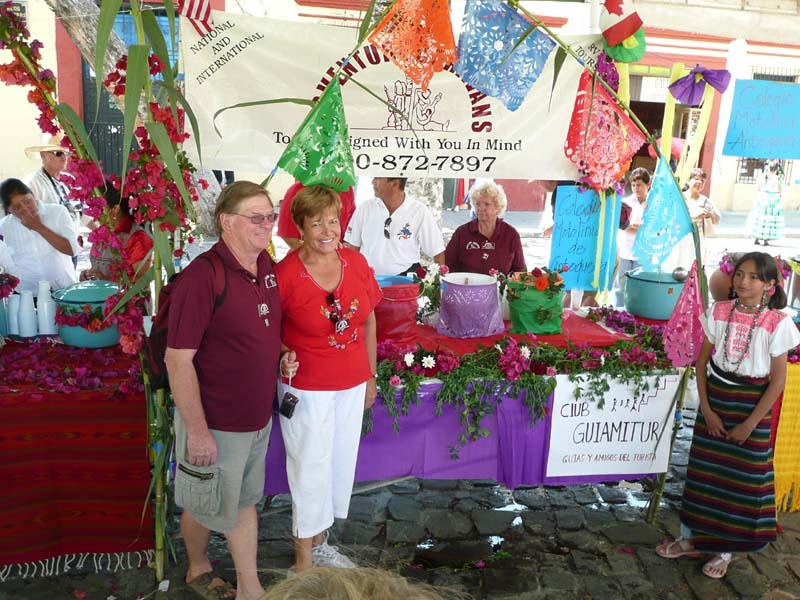
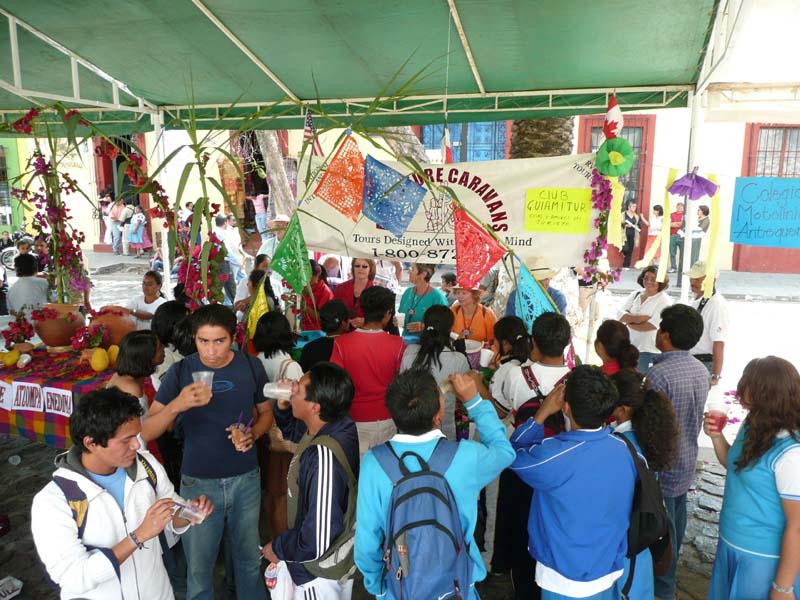
| List | Previous | Next |